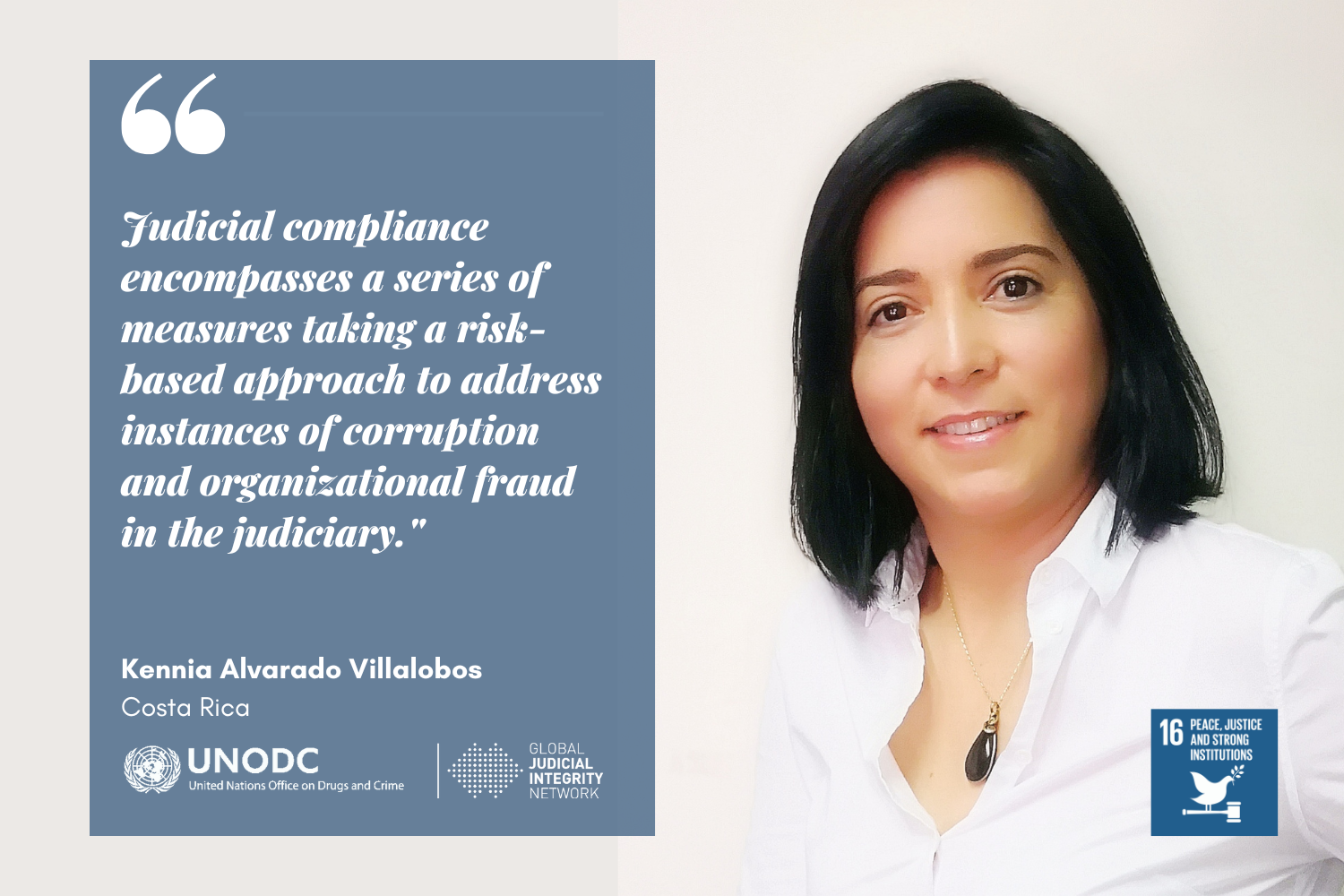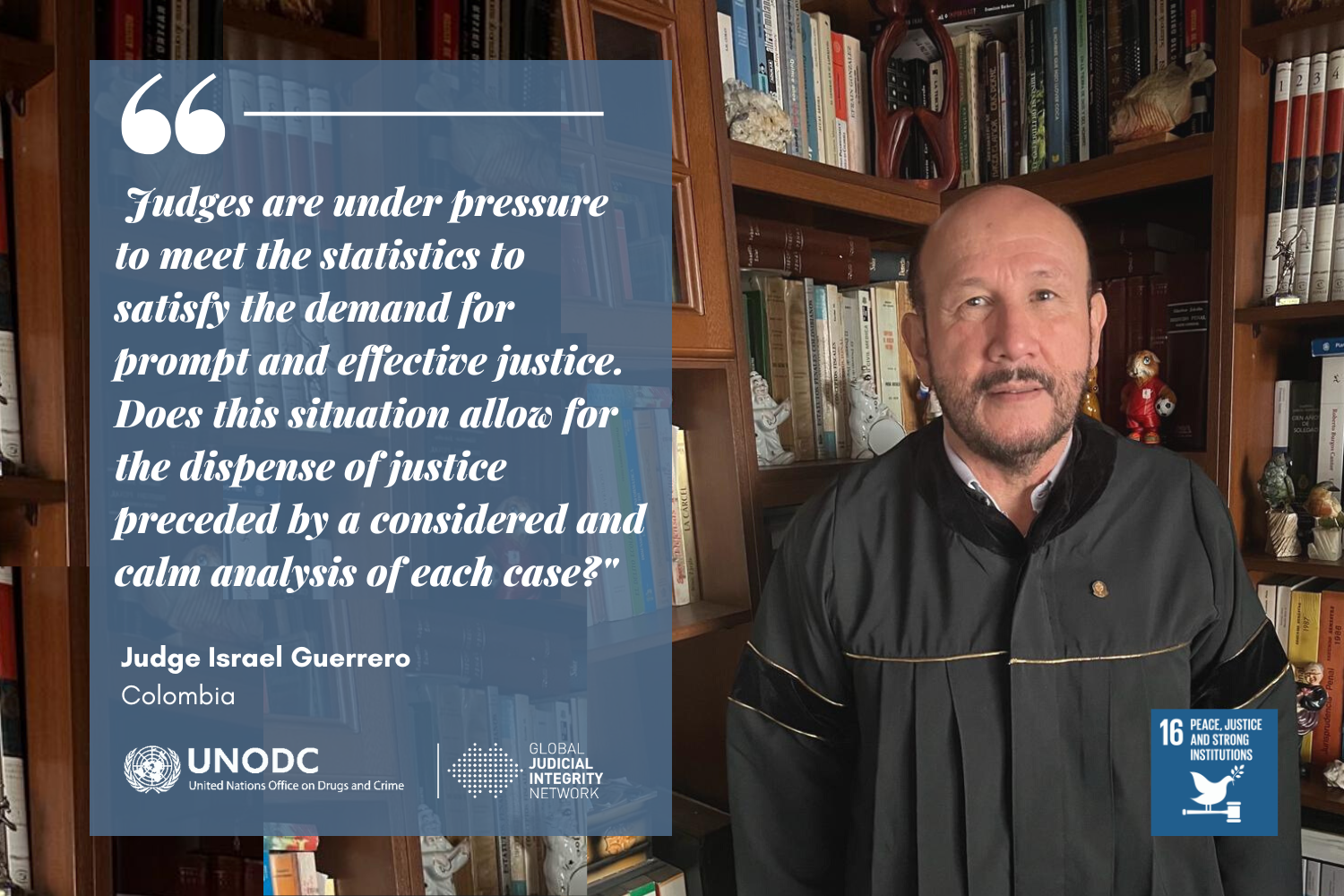Judicial Suspension and Electronic Access to Justice
By Judge Ju Yeon Lee
Judge Ju Yeon Lee is a judge in Suwon District Court in the Republic of Korea. All opinions expressed in this piece are solely those of the author as an external expert and do not necessarily reflect the official position of UNODC.
______________________________
Can judges wear masks in court trials? COVID-19 presents us with a novel question that demonstrates a conflict of values in this time.
If trials contribute to the spread of the virus, public trust in the judiciary could be undermined. It goes beyond the judicial duties of a judge if performing those duties poses a direct threat to the judge’s life or health.
However, the timely exercise of the judicial function may be more important than ever. According to the Bangalore Principles of Judicial Conduct, a judge shall perform all judicial duties with reasonable promptness. In the Republic of Korea, instead of compulsory and full-scale lockdown, the government instead has imposed obligatory self-quarantine only on high-risk groups. Violation of the obligation results in criminal penalties. Therefore, reasonably prompt trials for the violators are necessary to show the public the effect of their violation and achieve the general preventive effect. Meanwhile, the judiciary should also examine whether the restriction of basic rights by the government’s urgent action is appropriate or not.
Therein lies the judiciary’s concern during this pandemic. Most of the judicial functions that require face-to-face contact could be suspended, but some essential functions cannot be stopped. The Republic of Korea has reached the peak of COVID-19 early and entered a relatively stable phase. Courts have finished a few weeks of recess. At present, some judges are holding their trials with masks on, and a few others are experimenting with video hearings based on the long-established electronic litigation system. While the function of the mask is limited, the electronic procedure, including online submission and video hearing, is a balanced measure to maintain the core services of the judiciary. This kind of epidemic may happen again in the future and the judiciary should prepare tools to be made available under similar circumstances. In that sense, technology in courts is becoming an inevitable solution, whatever the form and the degree of its use may be.
Electronic procedures improve access to courts and when the electronic access is optional or additional, there are relatively few problems regarding its fairness. However, once it becomes the only way to approach courts, it might directly affect the fairness of the trial. Suppose that someone files a suit in their own country against a foreign national via electronic procedure, which is the only method. If the defendant has no access to the electronic litigation system because it does not offer ID verification service to other countries’ nationals, then the trial itself cannot be fair. The same problem occurs when the system is not readily available to someone due to a lack of facilities or human support. Electronic courts should be accessible to everyone regardless of age, gender, nationality, financial ability, place of living, etc. While developing technological tools available in an emergency, the judiciary should look more closely at those who are not familiar with technology.


